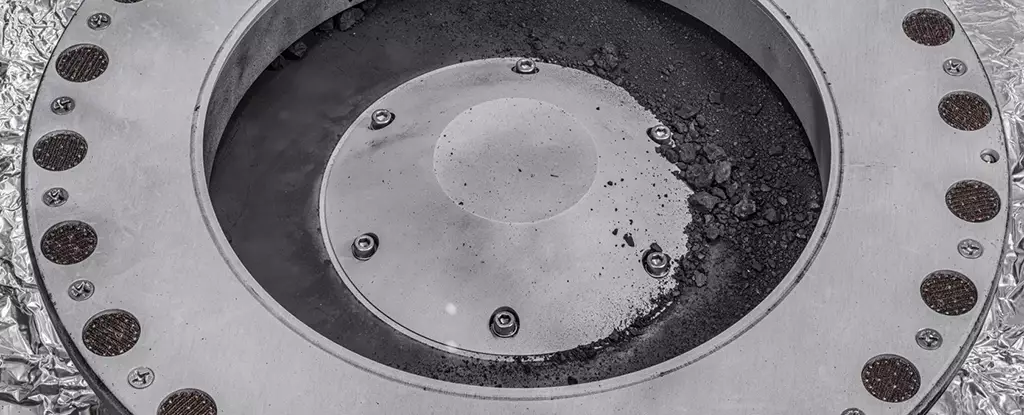NASA scientists have recently begun analyzing fragments brought back from Bennu, an asteroid believed to have originated from an ancient ocean world. The presence of a phosphate crust on the asteroid, a calcium and magnesium-rich mineral that has never been seen before on meteorites, provides evidence for this hypothesis. Intriguingly, the chemistry of this mineral closely resembles that of the vapor shooting from beneath the icy crust of Saturn’s moon, Enceladus. Furthermore, phosphate is known to be a crucial building block of life, supporting the notion that asteroids played a significant role in the emergence of life on Earth.
Scientists speculate that the world Bennu once belonged to may have shared similarities with Enceladus but was likely around half its size. As the Solar System took shape, this world would have been destroyed by a collision with another object, resulting in the formation of thousands of asteroids. These findings present an exceptional opportunity for scientific research since the study of asteroid samples is exceedingly rare. The OSIRIS-REx mission, the third of its kind in history, successfully collected samples from Bennu after a seven-year journey spanning a distance of 6.21 billion kilometers. The sample capsule safely arrived back on Earth in September 2023. With an abundant amount of material to study, scientists are eager to embark on this extensive research project.
Teams from various research institutions worldwide are engaged in the detailed examination of the asteroid fragments. At the University of Arizona, researchers are meticulously sifting through thousands of particles, the largest of which measures 3.5 centimeters in diameter. Advanced techniques, such as X-ray diffraction, are being employed to analyze the electromagnetic radiation patterns and gain deeper insights into the nature of the material under investigation. The prevalent belief is that Bennu represents remnants from the formation of the Solar System approximately 4.5 billion years ago. Discovering the origin of Bennu will not only enhance our understanding of the Solar System’s history but also shed light on our own origins as a species. Although currently in the early stages of research, expect more groundbreaking discoveries and revelations in the future, including the possible confirmation of the type of planetesimal that birthed Bennu. These discoveries will be presented at the forthcoming 55th Lunar and Planetary Science Conference in Texas.
The Significance of Bennu
The collection and analysis of fragments from Bennu offer an unparalleled opportunity for scientists to examine an asteroid in great detail. By studying Bennu, researchers can glean valuable information about the earliest stages of the Solar System’s formation and gain insights into the formation of other celestial objects. Furthermore, the presence of the phosphate crust on Bennu provides tantalizing evidence that asteroids played a vital role in delivering the necessary ingredients for the emergence of life on Earth. This discovery aligns with the theory that life on our planet was kickstarted by the collision of these extraterrestrial bodies with Earth’s surface during its turbulent beginnings.
The ongoing analysis of Bennu’s fragments provides an exciting opportunity for scientists to uncover more about our cosmic origins. The similarities between Bennu’s phosphate crust, vapor emissions from Enceladus, and the significance of phosphate as a building block of life give credence to the idea that asteroids have played a pivotal role in the creation and evolution of life on Earth. As the research progresses, scientists are eagerly anticipating more revelations that will further our understanding of the Solar System’s history and provide invaluable insights into our own origins as beings in this vast universe.


Leave a Reply